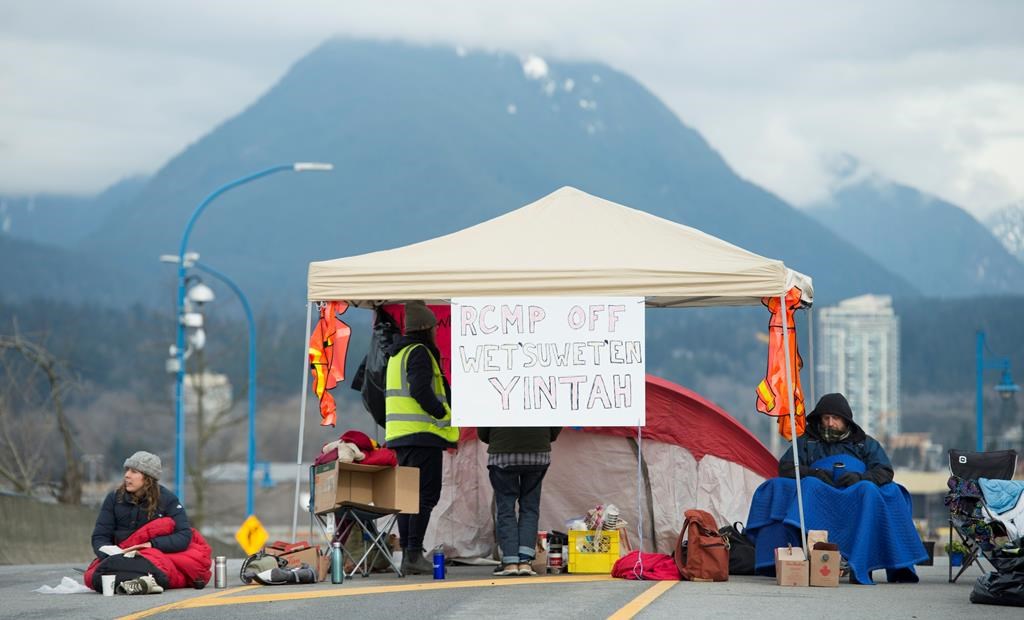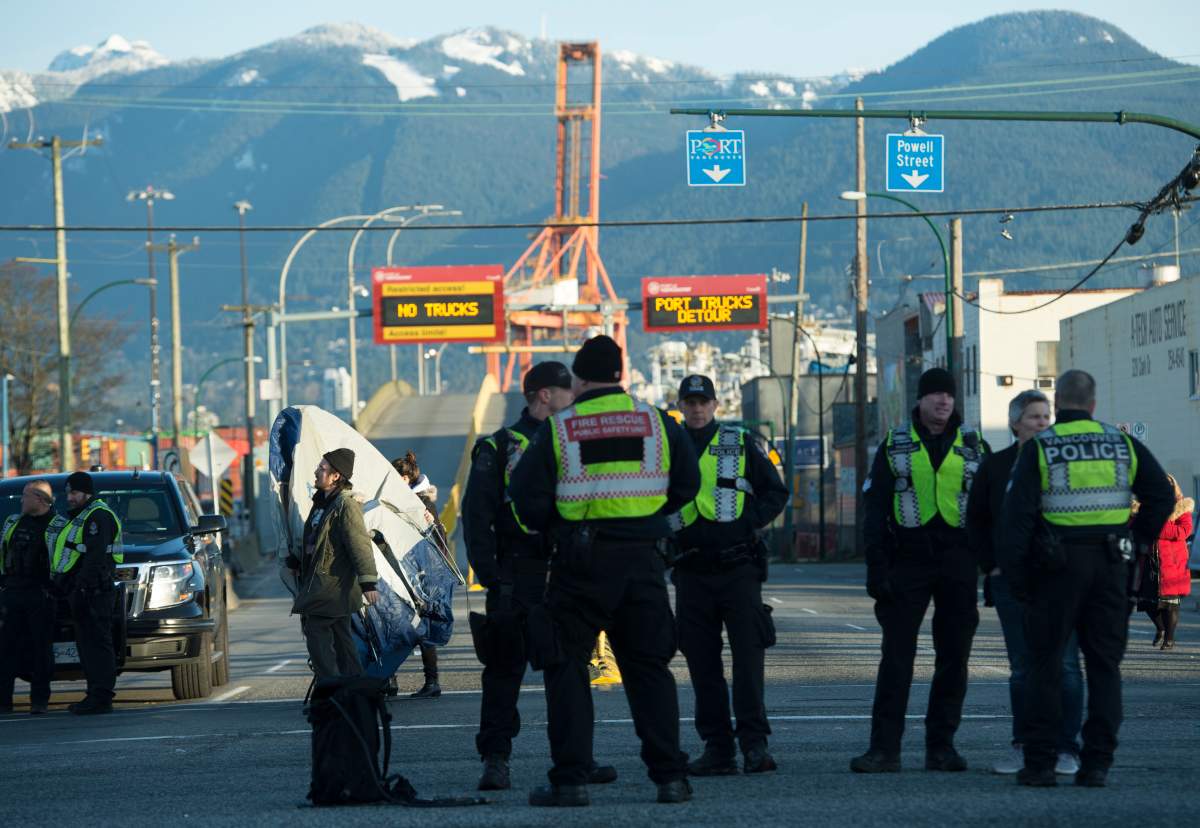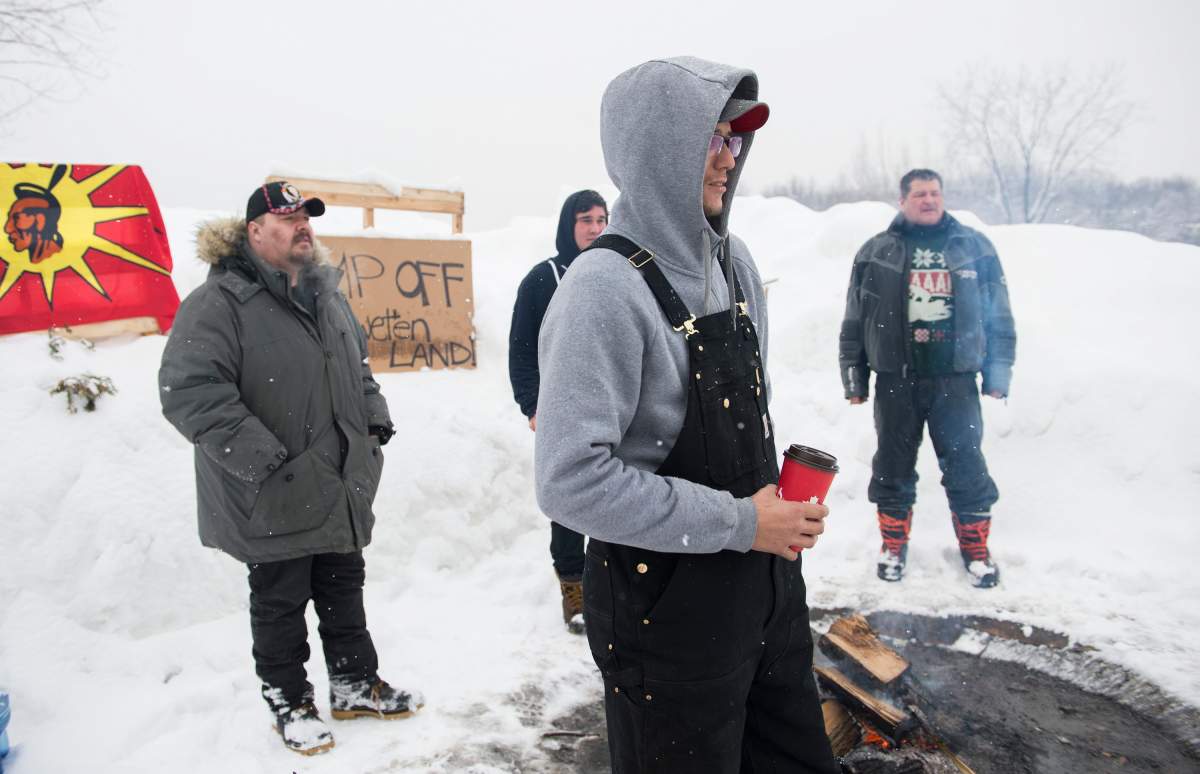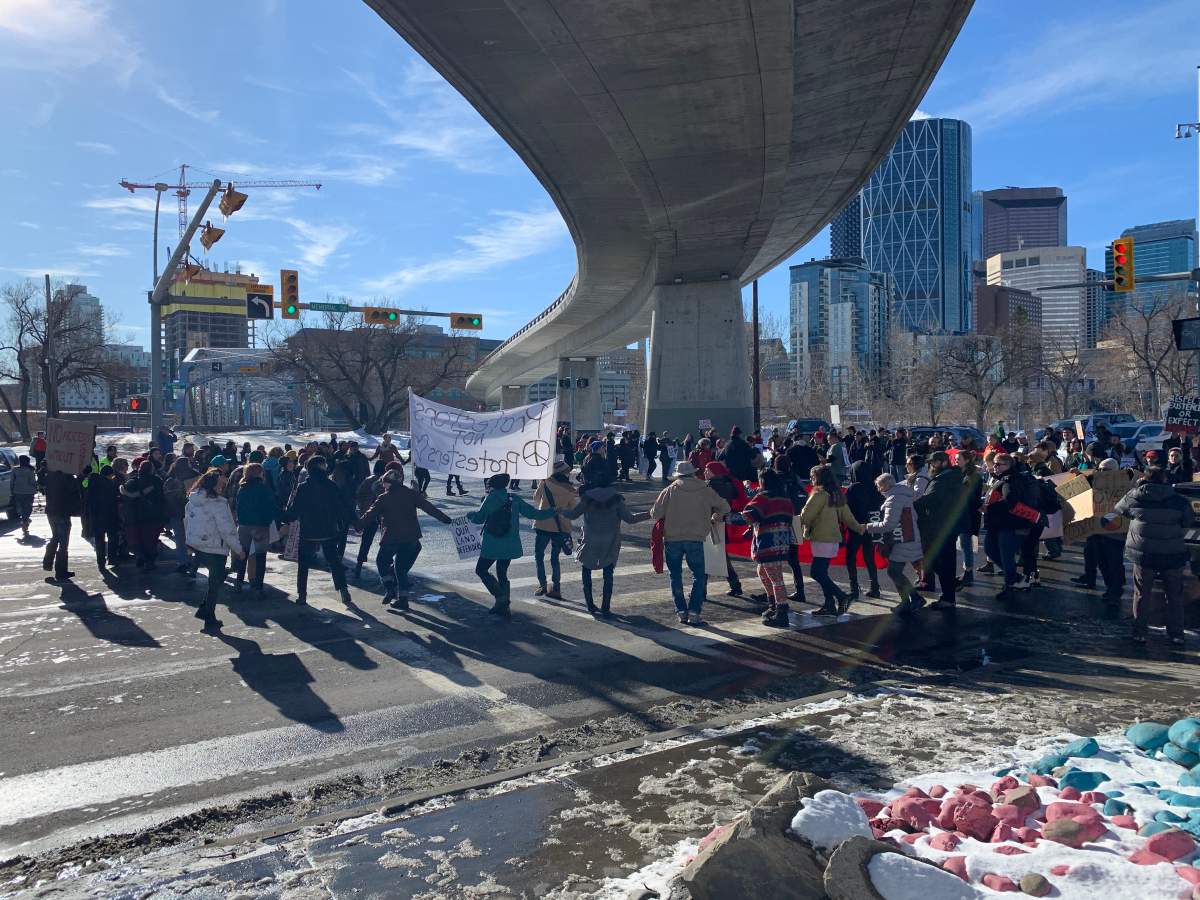From the steps of British Columbia’s legislature to rail lines in Ontario and Quebec, support for a First Nations people’s fight to halt a pipeline project is growing across Canada.

The protests are organized in solidarity with Wet’suwet’en hereditary chiefs, who are trying to stop construction of a massive natural gas pipeline that crosses their traditional territory.
The $6-billion, 670-kilometre Coastal GasLink pipeline signed agreements with 20 other elected First Nations situated along the route, but Wet’suwet’en hereditary chiefs say the pipeline cannot be built without their consent.
Wet’suwet’en protesters have opted to block its construction in various remote locations in northwestern B.C., preventing workers from accessing certain parts of the site.
On Feb. 6, RCMP officers moved into a Wet’suwet’en checkpoint camp to enforce a court-ordered injunction related to opposition against the pipeline. A number of protesters were arrested.
While RCMP says “minimal force” was used to make the arrests, the protesters allege that the action was not peaceful.
More arrests have been conducted since then. The increasing arrests and action by the RCMP have spurred solidarity protests across Canada. Rallies and protests have popped up across the country from Toronto to Winnipeg to Calgary and Victoria.
Here’s a look at some of the response:
Vancouver ports
The peak of recent protests in solidarity with the Wet’suwet’en chiefs has been at the Port of Vancouver.
For several days, protesters supporting the B.C. pipeline opponents blocked ramps and roads in the area, creating heavy traffic backups and hindering operations at the port.
One organizer said the protests are also meant to send a message to the government.
“We recognize the importance of disrupting capital, disrupting money and goods that come out of the city of Vancouver, that are coming from up north or going up north or that are being sent around the world,” Vancouver Wet’suwet’en protest organizer Natalie Knight told The Canadian Press.
“This sends a very clear message to business and the government that we are not going to allow business to continue as usual.”
An injunction was served to demonstrators on Sunday — the fifth day of their demonstration. It ordered the protesters off Vancouver Fraser Port Authority land so operations could resume.
Police flooded the area early Monday morning when the protesters did not comply and began making arrests and removing barricades from the port.
More than 60 protesters were arrested, according to Vancouver police. The streets have since reopened to traffic and debris has been removed. It’s unclear if the demonstrations at the port will resume.

Get daily National news
Another demonstration was launched in East Vancouver Monday evening to block a rail line that feeds directly into the port. Knight said about 150 people were gathered there.
Ontario rail line

A blockade on a key rail line in eastern Ontario led to the cancellation of Via Rail service between Montreal and Toronto for five days.
A group of protesters have been stationed in vehicles and snowplows at a rail crossing in Tyendinaga Township, Ont., in support of Wet’suwet’en chiefs since Feb. 6.
CN Rail Police, who have jurisdiction over the rail lines, have received an injunction to remove protesters from the area. But, as of Monday afternoon, the protesters remain, with flags and signs reading “RCMP get out.”
Quebec commuter trains
In Montreal, protests disrupted commuter train service on the Exo’s Candiac line, forcing the regional transit authority to sub in buses to supplement service.
The protest in Montreal is blocking the Canadian Pacific rail line, impacting commuters at a number of stations.
Officials are keeping an eye on the situation, but said service could be disrupted for an indefinite period.
Elsewhere
A number of other protests showing support for the Wet’suwet’en hereditary chiefs have emerged in recent days.
On the front steps of the B.C. legislature in Victoria, dozens of Indigenous youth and supporters have camped out for days in a show of solidarity.
Photos posted online show a small tent city, drum circles and large protest signs.
The protest camp shows no signs of leaving ahead of a throne speech set for Tuesday.
In Calgary, a rally led to the closure of Calgary’s Reconciliation Bridge on Monday afternoon.
Dozens of people with signs held high were seen in the intersection of 4 Street N.E. and Memorial Drive — protesting in the construction of a massive natural gas pipeline that will cross the Wet’suwet’en traditional territory.
Calgary police officers and EMS were on hand a the peaceful protest helping to direct and block traffic. Police told Global News the group was allowed to rally and block the roadway for up to two hours.
In Winnipeg, protesters took to the streets on Feb. 7 to rally against RCMP action on Wet’suwet’en camps.
The supporters are expected to shut down the traffic-heavy Portage Avenue again on Monday.
During a demonstration in Regina, protesters blocking Albert Memorial Bridge faced a dangerous response when a car reportedly plowed through their picket line.
While there were no reported injuries, video of the ordeal shows protesters banging on the driver’s window and chasing after the car as it drives through the protest. Local police are investigating.
Supporters have been using the hashtag #WetsuwetenSolidarity and #WetsuwetenStrong to organize outside of Canada as well.
— with files from Global’s Heide Pearson and the Canadian Press












Comments
Want to discuss? Please read our Commenting Policy first.